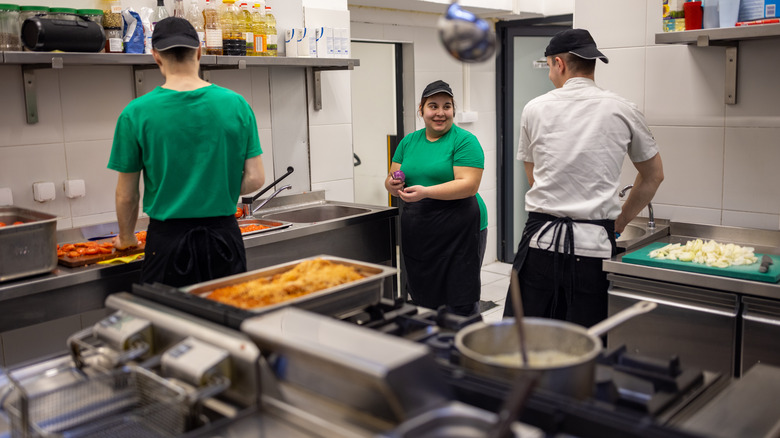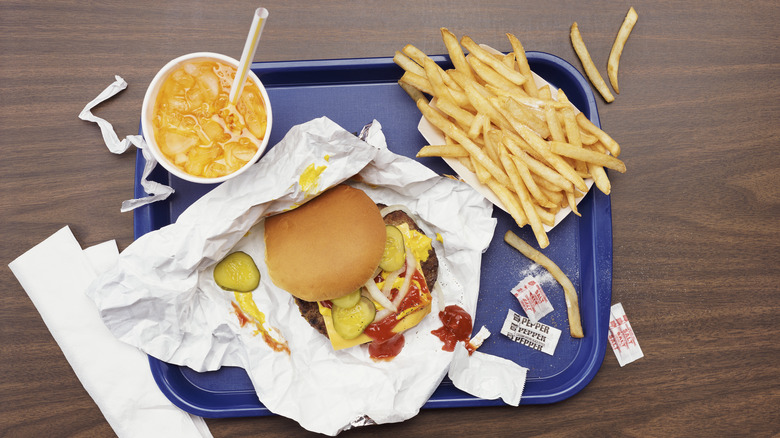California's Fast Food Workers Just Scored A $20 Minimum Wage
California has been at the forefront of changes and improvements for those working in the fast-food industry, trying to pass laws like the FAST Recovery Act (Fast Food Accountability and Standards Recovery Act) to give quick service employees more of a voice in their pay, available benefits, and working conditions. But, after a lot of controversies that even saw McDonald's president call the law 'backroom politicking,' Governor Gavin Newsom has instead signed a law, AB 1228, that will raise fast-food workers' minimum wage from $15 to $20 an hour.
The new law will go into effect on April 1, 2024, all across California and is to take the place of the FAST Recovery Act. AB 1228 will create a Fast Council that will be able to increase the minimum wage annually, but the amount allowed will be "capped at the lesser of 3.5% or the annual increase in the US-CPI (Consumer Price Index) for Urban Wage Earners and Clerical Workers" (from the Office of Governor Gavin Newsom).
The Fast Food Council will also help create training, employment standards, and guidance on working conditions. While the original FAST Recovery Act council consisted of 10 members, the new Council will have nine, with a mix of employees and employers along with one member who is not in the fast-food industry in any capacity.
The law was a compromise between fast-food employers and unions
AB 1228 comes after a year of pushback from restaurant lobbying groups over the FAST Recovery Act. The Save Local Restaurants Coalition, which consisted of the National Restaurant Association, the International Franchise Association, and the U.S. Chamber of Commerce, was formed to fight the FAST Act. The group gathered large amounts of donations from major fast-food corporations like Yum Brands, In-N-Out, Chipotle, and Chick-fil-A. A large part of the language of AB 1228 reflects what was proposed in the coalition's Save Local Restaurants Act.
The compromise that created the new law was praised by David Huerta, the President of SEIU (Service Employees International Union) California and SEIU USWW, as well as the President and CEO of the International Franchise Association, Matt Haller, who responded in a press release that "commonsense has prevailed."
While many in the fast-food industry are happy that the law will finally go through, the reactions on Governor Newsom's X, formerly known as Twitter, page were much more mixed. Many worry that the law will push fast-food restaurants to become more automated and expensive. "This will inadvertently lead to job reductions in the fast food sector," claimed one critic. "More robo-coffees and touch-to-order machines." Another said, "Californians will also now pay the most money for fast food in the nation and will have the most employees replaced by robots."

